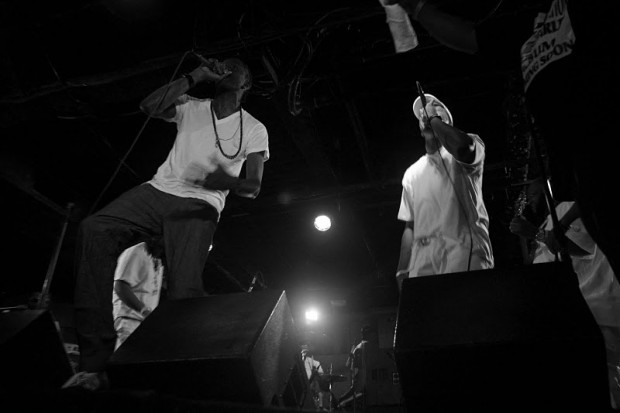Does Go-Go Have a Home in Tenleytown?

Michael Martinez / The Kojo Nnamdi Show
Go-go first emerged during the 1970s in D.C.
Go-go has a tenuous place within the District’s borders. It’s the city’s homegrown music which came out of the black community, but many clubs and venues have been shut down over the past few decades because of liability and violence concerns. Police and local officials have linked the music to violence.
For years, it’s been rumored that go-go bands were banned from playing Fort Reno’s outdoor concert series in tony Tenleytown. This week, Washington City Paper asked a number of local musicians and concert organizers whether such a ban ever existed. Most respondents said it was mostly rumored but hard to confirm. Some said they’ve never recalled a go-go band requesting to play, or that none would play for free since most are large professional bands who normally take paying gigs.
But one respondent, Mike Kanin, who booked shows at Fort Reno in the late 1990s said, “I remember when we were booking, we weren’t allowed to book go-go bands. There were legitimate concerns about violence from the cops.”
These days if you want to catch a go-go show, you’re just as likely to head outside of the District’s borders than stay within them. But go-go has an uncertain fate in the suburbs, too; Prince George’s County, for example, recently tightened restrictions on dance halls with reputations for violence. And many of those clubs happen to host go-go shows.
-
http://notionscapital.com Mike Licht




